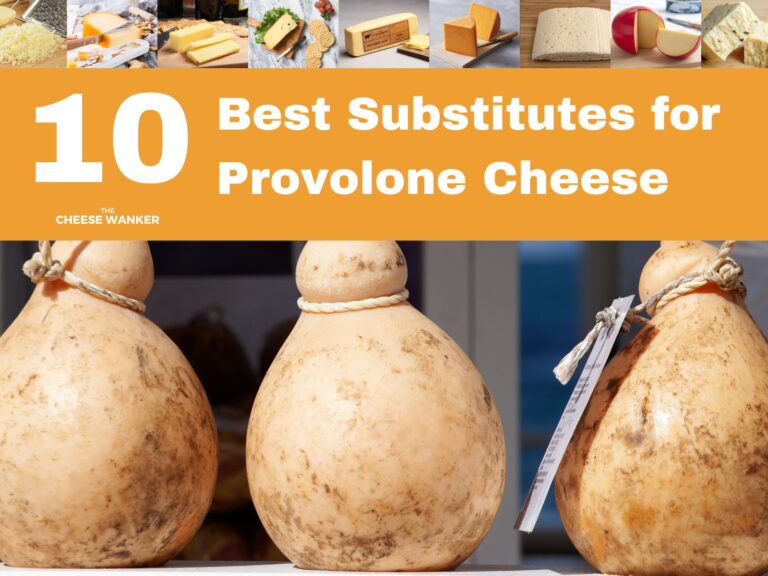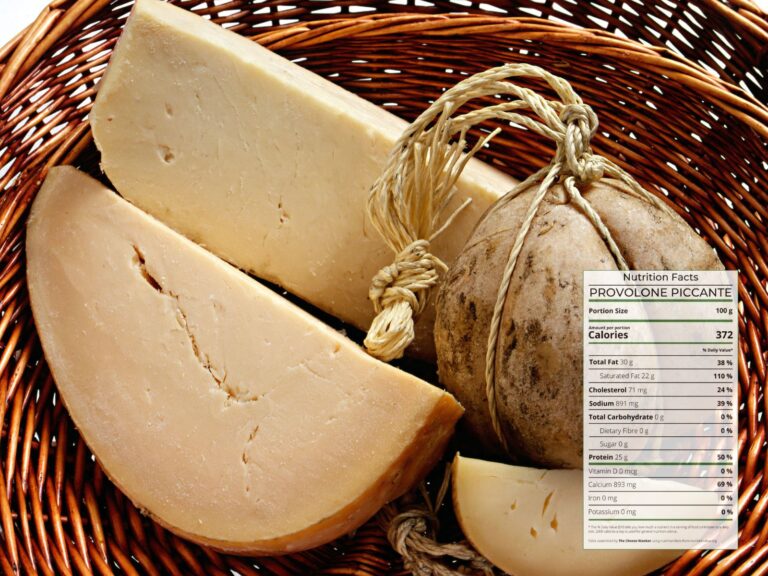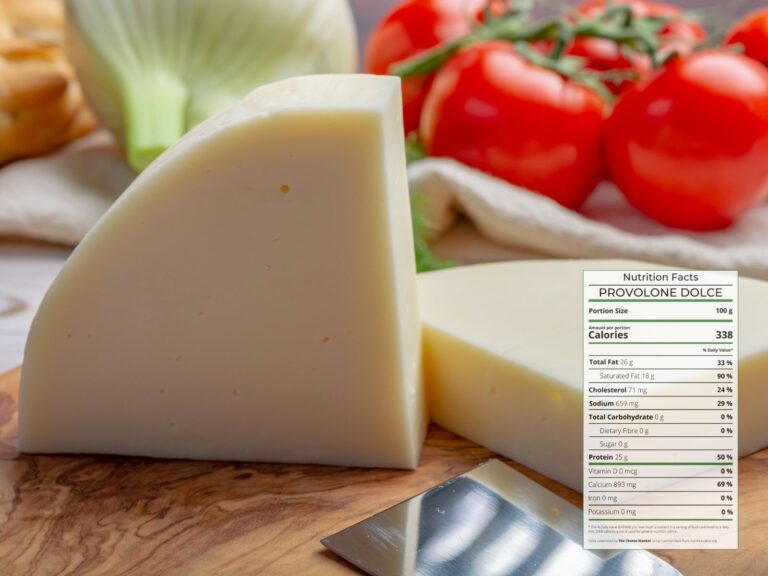For individuals with lactose intolerance, consuming foods containing lactose can result in digestive discomfort such as bloating, gas, and diarrhoea. When it comes to cheese, there is often confusion surrounding its lactose content. In this blog post, we will explore the topic of Provolone and its lactose content, shedding light on whether it is suitable for those with lactose intolerance.
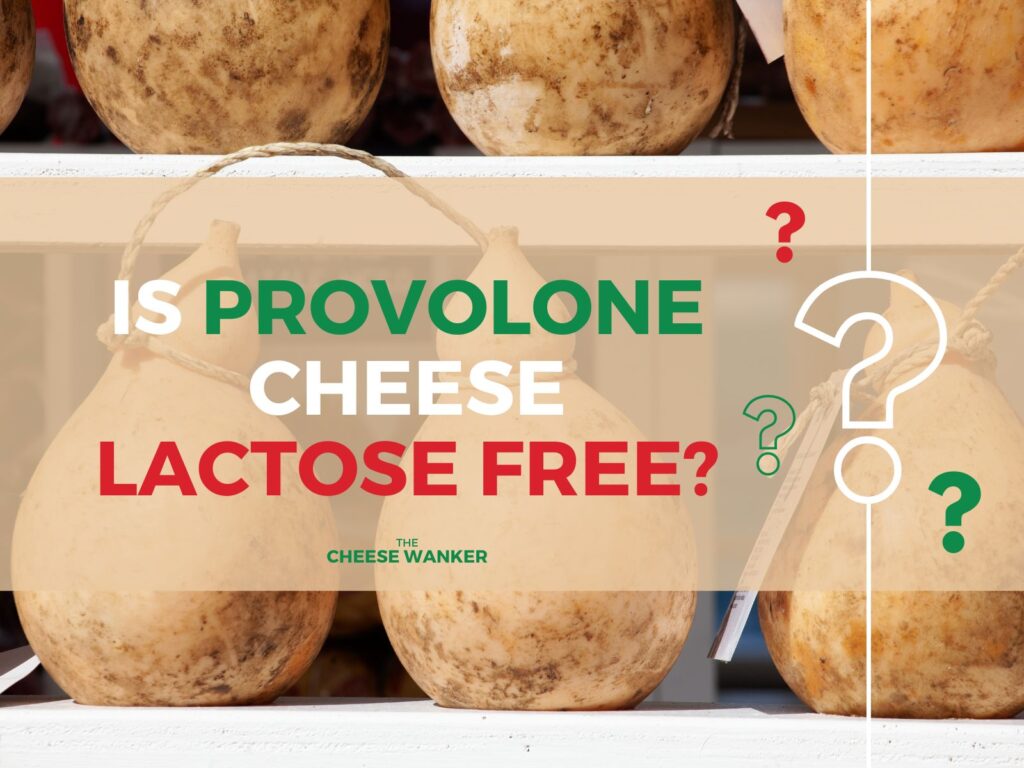
SEE ALSO: Our complete guide to lactose and lactose-free cheeses →
What is lactose intolerance?
Firstly, let’s delve into the fascinating world of lactose intolerance and explore the relationship between this condition and Provolone cheese.
Lactose is a carbohydrate (sugar) that occurs naturally in milk. Actually, a small percentage of humans don’t produce a substance (enzyme) called lactase. You might have guessed its role from its name. Indeed, lactase breaks down the lactose we consume into a form that our body can digest.
Consequently, people who can’t produce lactase are said to be lactose intolerant. The symptoms of this intolerance can include loose bowel motions, wind and a general feeling of being bloated and uneasy.
Statistically speaking, people who are lactose intolerant start to show symptoms of discomfort when they consume more than 12g of lactose. Therefore, a glass of milk is often within the limits of what their body can handle.
You can read our complete blog post on lactose intolerance here.
What is Provolone?
Provolone originated in the Po Valley of northern Italy and has gained popularity worldwide due to its distinctive taste and versatility. This semi-hard cheese is typically made from cow’s milk, although some varieties may include sheep or goat milk.
Undoubtedly, Provolone offers a delightful combination of flavours. Its taste can range from mild and creamy to tangy and piquant, depending on the ageing process.
The younger Provolone Dolce offers a milder flavour with hints of butter and milk. On the other hand, the more aged Piccante develops a more pronounced taste, often described as nutty, tangy and slightly spicy.
You can read more about the history and production of Provolone cheese in our dedicated post here.
How much lactose is in Provolone?
Provolone cheese, like most other aged cheeses, undergoes a fermentation process during which the lactose is converted into lactic acid by bacteria. This process significantly reduces the lactose content in the cheese.
As a result, the majority of Provolone cheeses contain less than 1mg of lactose per 100 g serving. Moreover, aged versions of Provolone Piccante tend to be entirely lactose free.
You can find our entire database of lactose content in cheese here.
Can lactose intolerant people eat Provolone?
Fortunately, due to its minimal lactose content, Provolone cheese is generally well-tolerated by lactose intolerant individuals.
However, it’s worth noting that sensitivity to lactose can vary among individuals, and some may still experience mild discomfort after consuming Provolone. In such cases, it’s advisable to start with small portions and observe personal tolerance levels.
Conclusion
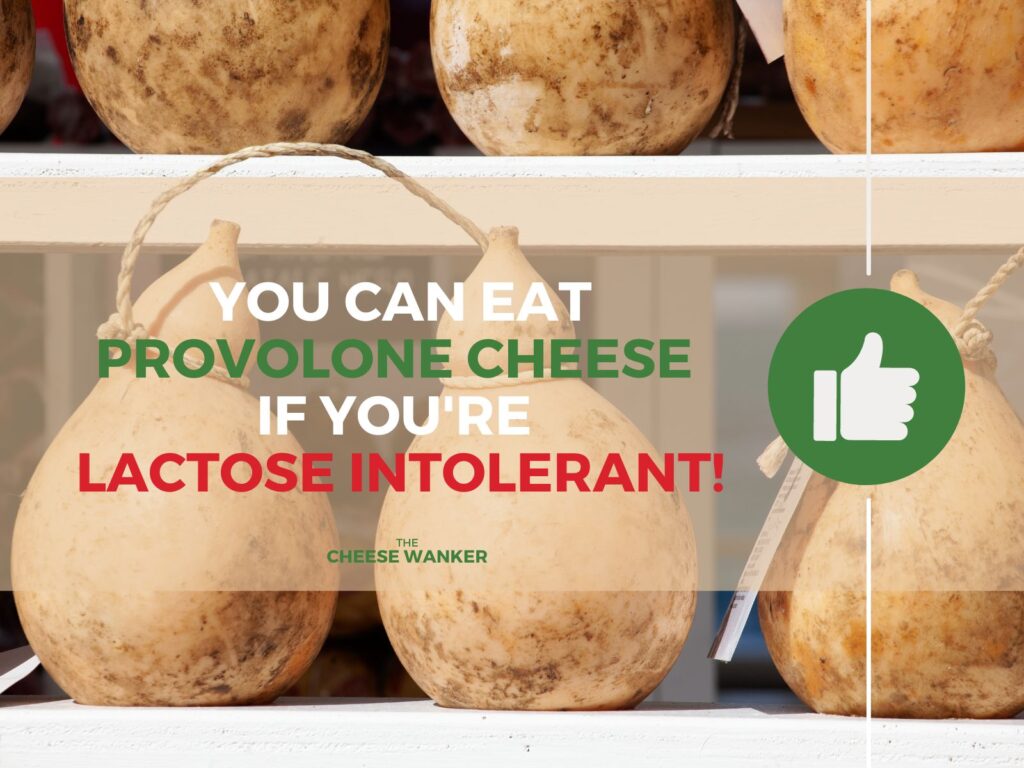
Lactose intolerance, a condition characterised by the body’s inability to digest lactose, affects numerous individuals worldwide. However, the lactose content in Provolone cheese is significantly reduced during the fermentation and ageing process, making it a suitable option for most lactose intolerant people.
The distinct flavours and versatility of Provolone cheese make it an excellent choice for enhancing various dishes, from sandwiches to pasta.
Are you lactose intolerant? We’d love to hear about your experience with Cheddar cheese. Leave us a comment below.

